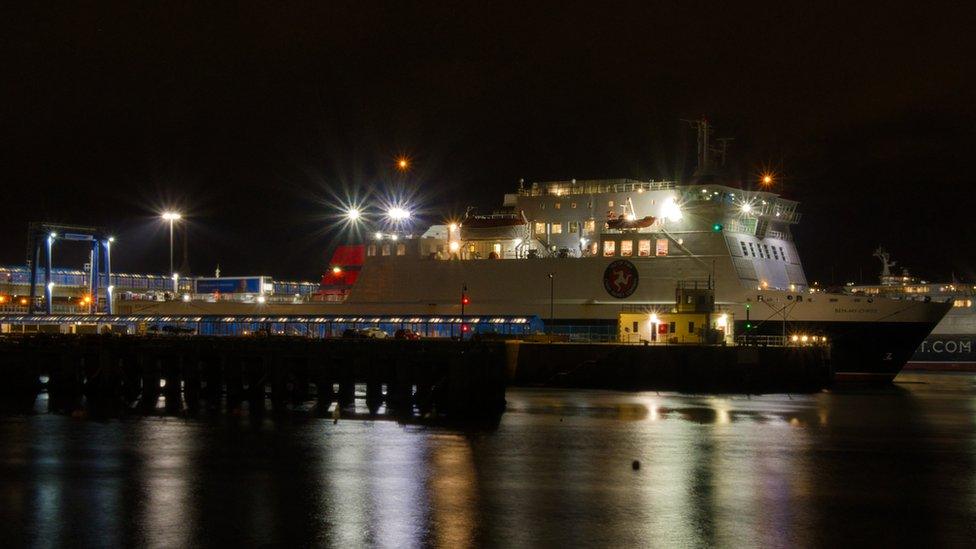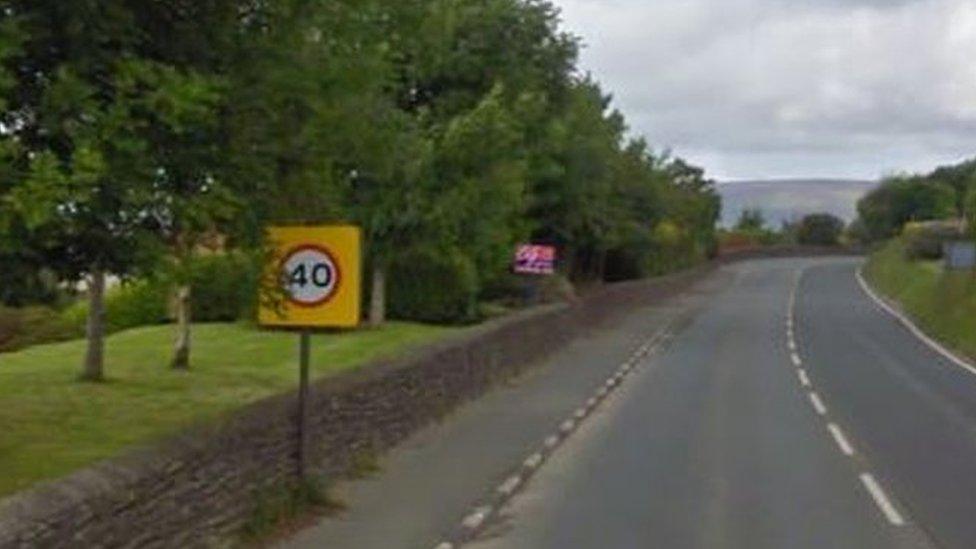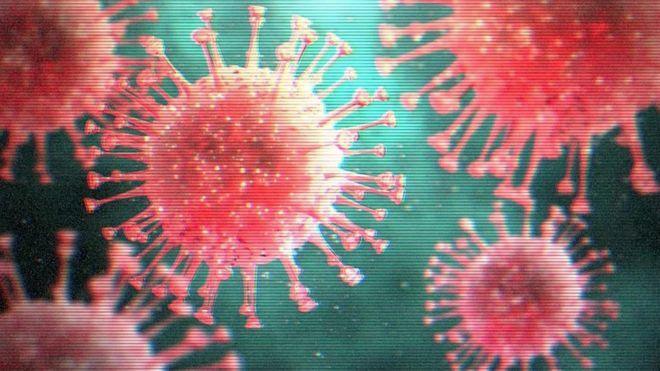Coronavirus: Stranded Manx people 'feel abandoned' after border closure, MHK says
- Published

The Manx border was closed last week for at least 21 days
People from the Isle of Man stuck abroad during the coronavirus pandemic "feel abandoned" after the island's border was closed, an MHK has said.
Bill Shimmins told the Manx parliament that stranded residents felt “angry” and “frightened” by the move.
More than 100 people were left unable to return home to the island following the border closure on Friday morning.
Chief Minister Howard Quayle said the decision had been “horrendously tough” but had been made to "save lives".
The step had been taken on the advice of the island's medics to prevent demand at Noble's Hospital going “through the peak of medical capacity”, he added.
A further 11 positive cases of coronavirus were recorded on the Isle of Man on Tuesday, while a third patient was hospitalised.
The total number of cases on the island now stands at 60.

EASY STEPS: What should I do?
CONTAINMENT: What it means to self-isolate
MAPS AND CHARTS: Visual guide to the outbreak
VIDEO: The 20-second hand wash

An extraordinary sitting of Tynwald was held on Tuesday to approve several pieces of emergency coronavirus legislation, including the restrictions on entry to the island.
Mr Quayle told politicians the government was aware of 17 island residents currently stranded in the UK and another 88 "further afield" in countries including Australia, India and Russia.
Mr Shimmins said: "They see what every other country in the world is doing and they feel badly let down.
"They've had several flights cancelled and no refunds. They have no money, they're worried, they're frightened."
Talks had taken place with the Foreign Office to ensure Manx residents were “entitled” to get on repatriation flights to the UK, Mr Quayle said.
The government was looking at ways to support those “isolated off the island” and would arrange return travel "once our medics feel reassured that is it safe" to do so, he added.
The restrictions on travel to the island were brought in for an initial period of 21 days.
- Published30 March 2020

- Published27 March 2020

- Published26 March 2020

- Published23 March 2020
